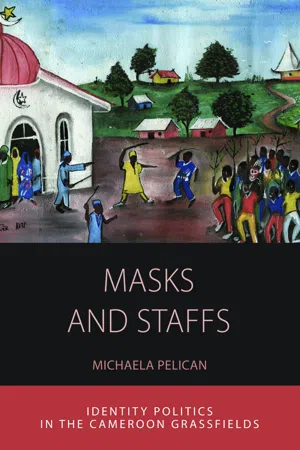
- 260 pages
- English
- PDF
- Available on iOS & Android
About this book
The Cameroon Grassfields, home to three ethnic groups – Grassfields societies, Mbororo, and Hausa – provide a valuable case study for the anthropological examination of identity politics and interethnic relations. In the midst of the political liberalization of Cameroon in the late 1990s and 2000s, local responses to political and legal changes took the form of a series of performative and discursive expressions of ethnicity. Confrontational encounters stimulated by economic and political rivalry, as well as socially integrative processes, transformed collective self-understanding in Cameroon in conjunction with recent global discourses on human, minority, and indigenous rights. The book provides a vital contribution to the study of ethnicity, conflict, and social change in the anthropology of Africa.
Frequently asked questions
- Essential is ideal for learners and professionals who enjoy exploring a wide range of subjects. Access the Essential Library with 800,000+ trusted titles and best-sellers across business, personal growth, and the humanities. Includes unlimited reading time and Standard Read Aloud voice.
- Complete: Perfect for advanced learners and researchers needing full, unrestricted access. Unlock 1.4M+ books across hundreds of subjects, including academic and specialized titles. The Complete Plan also includes advanced features like Premium Read Aloud and Research Assistant.
Please note we cannot support devices running on iOS 13 and Android 7 or earlier. Learn more about using the app.
Information
Table of contents
- Masks and Staffs
- Contents
- Figures and Tables
- Acknowledgements
- Notes on Transliteration
- Abbreviations
- Introduction
- 1 Setting the Scene
- 2 The Power of the Fon
- 3 From Pastoral Society to Indigenous People
- 4 A Shift to Economic Competition?
- 5 On Being Hausa
- 6 Grassfielder by Birth, Muslim by Choice
- 7 The Murder of Mr X
- Epilogue
- Glossary
- References
- Index